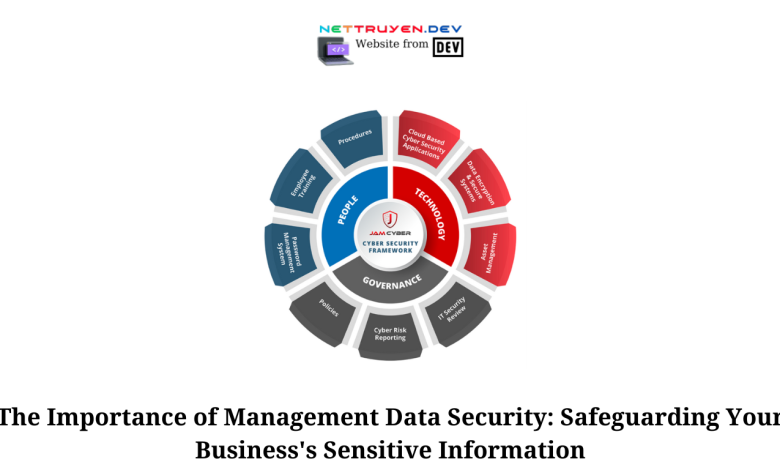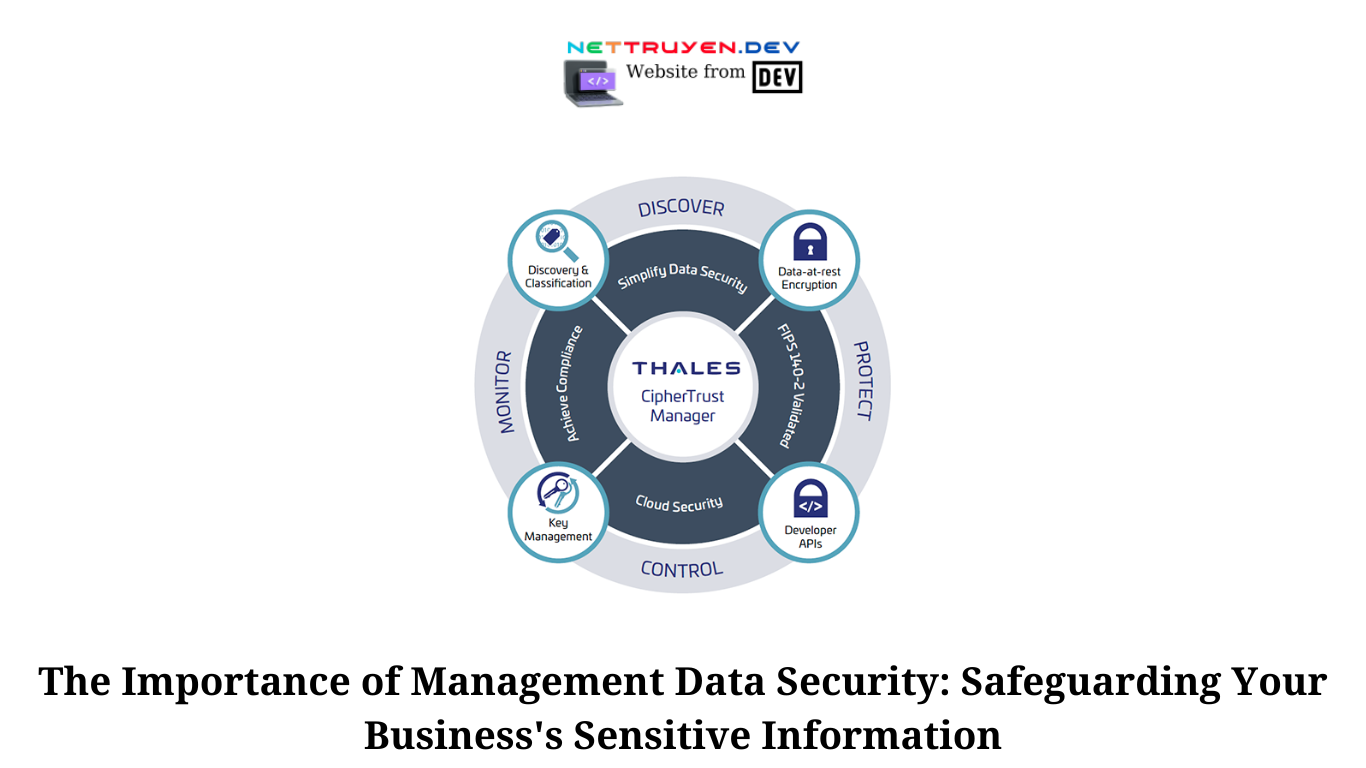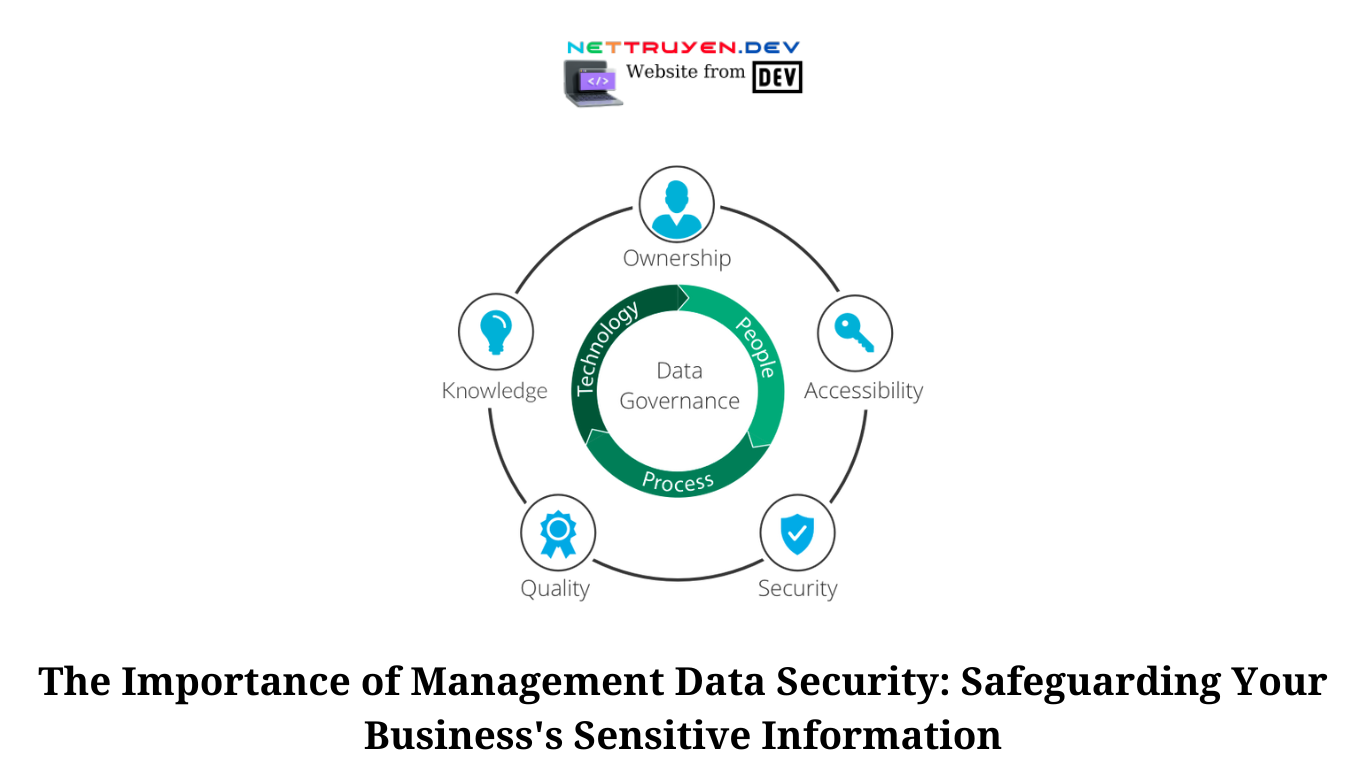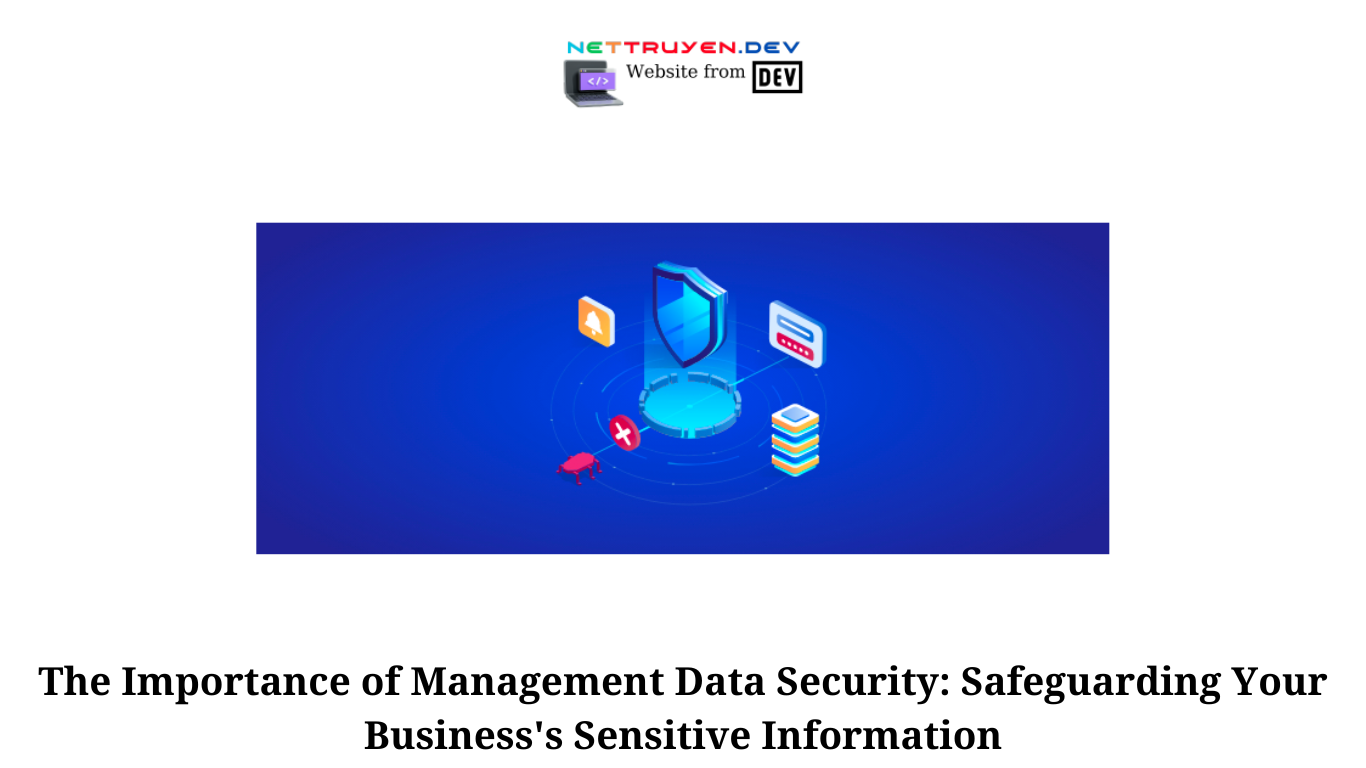The Importance of Management Data Security: Safeguarding Your Business’s Sensitive Information

Management Data Security, the security of sensitive data is of paramount importance for businesses. Effective management data security ensures the protection of valuable information from unauthorized access, breaches, and cyber threats. By implementing robust security measures and adopting best practices, organizations can safeguard their data assets, maintain customer trust, and avoid costly data breaches. In this article, Nettruyen will delve into the significance of management data security, explore key strategies for protecting sensitive information, and highlight the role of proactive management in maintaining data security.
The Importance of Management Data Security: Safeguarding Your Business’s Sensitive Information
- Understanding the Significance of Management Data Security:
Data security management refers to the comprehensive framework and practices designed to protect sensitive information from unauthorized access, alteration, or disclosure. Management Data Security encompasses various aspects such as data governance, risk assessment, access controls, encryption, and incident response. Management data security is crucial for businesses due to several reasons. Firstly, it helps protect confidential customer information, including personal data, financial records, and intellectual property, preventing identity theft and financial fraud. Secondly, it ensures compliance with industry regulations and data protection laws, avoiding legal implications and penalties. Lastly, a robust data security management system enhances the reputation and trustworthiness of an organization, attracting customers and fostering long-term relationships.

- The Role of Proactive Management in Data Security:
Effective management plays a vital role in ensuring data security within an organization. Proactive management involves establishing policies, procedures, and controls that address potential risks and vulnerabilities. It starts with a comprehensive risk assessment to identify potential threats, both internal and external, and their impact on the organization’s data assets. Based on the assessment, management can implement appropriate security measures, such as access controls, encryption, data backup, and employee awareness training. Proactive management also involves regularly monitoring and updating security protocols to adapt to evolving threats and technological advancements. By taking a proactive approach, management can minimize the chances of data breaches, mitigate risks, and swiftly respond to any security incidents. - Key Strategies for Management Data Security:
Implementing effective management data security requires a multi-faceted approach that encompasses various strategies and best practices. Here are some key strategies to consider:

a. Risk Assessment: Conduct regular assessments to identify potential vulnerabilities, evaluate risk levels, and prioritize security measures accordingly.
b. Data Classification: Classify data based on its sensitivity and establish access controls accordingly. Not all data requires the same level of protection.
c. Access Controls: Implement strong authentication mechanisms, role-based access controls, and least privilege principles to ensure that only authorized individuals can access sensitive data.
d. Encryption: Utilize encryption techniques to protect data both at rest and in transit. Encryption adds an additional layer of security, making it harder for unauthorized parties to decipher the information.
e. Employee Training and Awareness: Educate employees about data security best practices, the importance of confidentiality, and the risks associated with mishandling sensitive information. Regular training sessions can help foster a security-conscious culture within the organization.
f. Incident Response Plan: Develop a comprehensive plan to address and mitigate security incidents promptly. This includes procedures for reporting incidents, isolating affected systems, conducting investigations, and notifying relevant stakeholders.

g. Regular Audits and Monitoring: Conduct periodic audits of security controls and monitor systems for any suspicious activities or breaches. Prompt detection can help mitigate the impact of potential security incidents.
h. Vendor Management: Ensure that third-party vendors or partners who have access to your data adhere to robust security practices. Implement contractual agreements that outline their responsibilities regarding data protection.
i. Data Backup and Recovery: Regularly backup critical data and test the restoration process. In the event of a data breach or system failure, having reliable backups can minimize downtime and data loss.
j. Compliance with Regulations: Stay updated with relevant industry regulations and data protection laws to ensure compliance. Non-compliance can lead to legal consequences and damage the organization’s reputation.
- The Human Element: Addressing Insider Threats:
While external threats often take the spotlight, organizations must also address the risks posed by insiders. Insider threats can stem from employees, contractors, or anyone with authorized access to the organization’s systems and data. Management data security should include measures to mitigate these risks, such as implementing strict access controls, conducting background checks, and regularly monitoring user activities. Additionally, fostering a culture of trust, accountability, and awareness can help employees understand the importance of data security and their role in protecting sensitive information. Regular training programs should emphasize the risks associated with insider threats, including the potential consequences for both the individual and the organization. - Data Security in the Age of Remote Work:
The advent of remote work has introduced new challenges and risks to data security management. With employees accessing and transmitting sensitive data from various locations and devices, organizations must adapt their security measures accordingly. This includes implementing secure Virtual Private Networks (VPNs), multi-factor authentication, and endpoint protection solutions. Additionally, organizations should establish clear policies and guidelines for remote work, includingacceptable use of devices, secure handling of data, and regular software updates. Ongoing communication and training on remote work security best practices are essential to ensure that employees remain vigilant and adhere to data security protocols even outside the traditional office environment. - The Evolving Landscape of Data Security Threats:
Data security threats are constantly evolving, and organizations must stay ahead of emerging risks. Cybercriminals employ sophisticated techniques such as phishing, ransomware, and social engineering to gain unauthorized access to sensitive data. Management data security should include measures to mitigate these evolving threats, such as implementing robust email filters, conducting regular security awareness training, and staying informed about the latest cybersecurity trends. Collaboration with industry peers and participation in information sharing platforms can also provide valuable insights into emerging threats and effective countermeasures. - The Business Case for Management Data Security:
Investing in management data security is not just a matter of compliance and risk mitigation; it also makes good business sense. Data breaches can have severe financial and reputational consequences for organizations. The costs associated with legal liabilities, regulatory penalties, remediation efforts, and damage control can be staggering. Moreover, a data breach can erode customer trust, leading to customer attrition and a negative impact on the organization’s bottom line. On the other hand, robust data security measures can enhance customer confidence, attract new business opportunities, and foster a positive brand image. By prioritizing management data security, organizations demonstrate their commitment to protecting sensitive information and safeguarding the interests of their stakeholders.
Conclusion:
Management data security is an essential aspect of running a successful and secure business in today’s digital era. By implementing proactive security measures, addressing insider threats, adapting to remote work challenges, and staying vigilant against evolving threats, organizations can protect their sensitive information and maintain the trust of their customers and stakeholders. Effective management plays a crucial role in establishing a robust data security framework and ensuring its continuous improvement. By prioritizing data security, organizations can safeguard their invaluable assets, mitigate risks, and position themselves as responsible custodians of sensitive information in an increasingly interconnected world.
Conclusion: So above is the The Importance of Management Data Security: Safeguarding Your Business’s Sensitive Information article. Hopefully with this article you can help you in life, always follow and read our good articles on the website: nettruyen.dev




